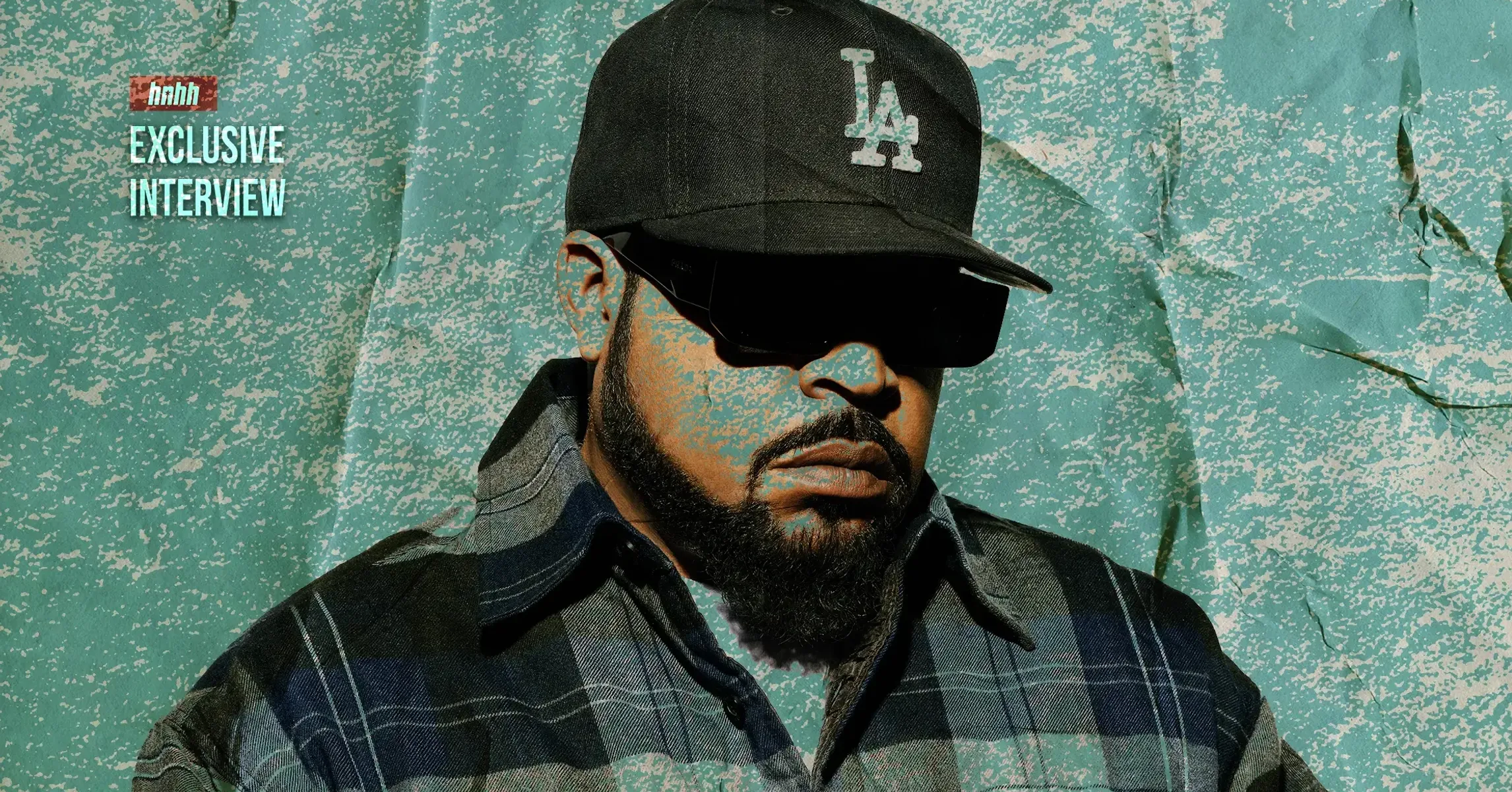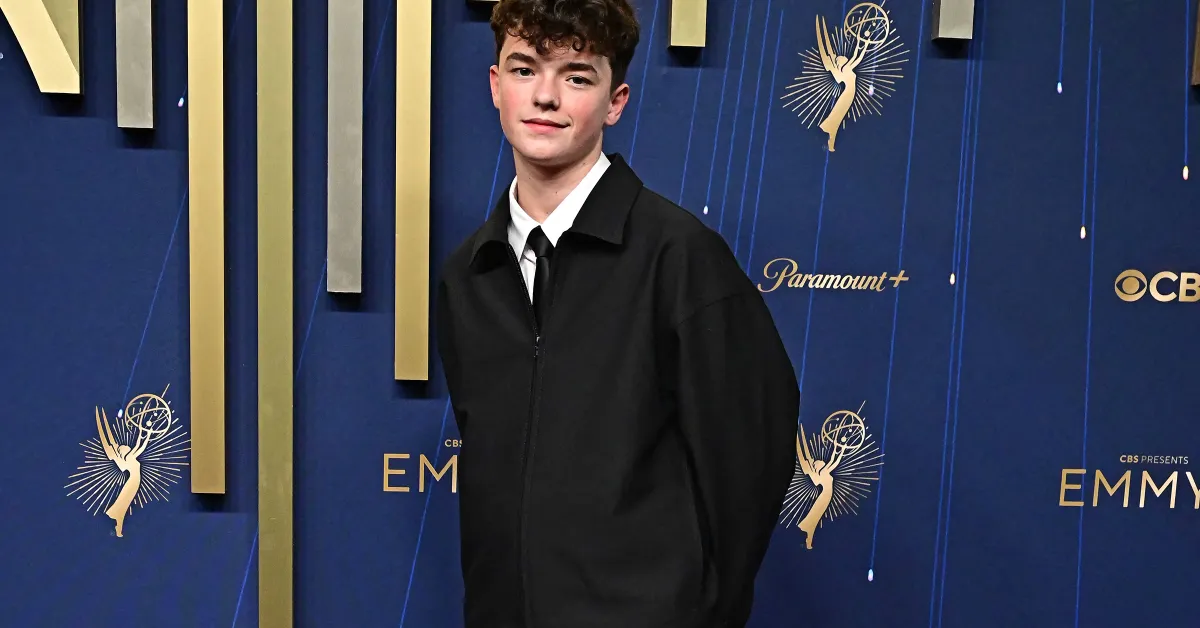
40 years ain’t nothin’ to sneeze at, Ice Cube says over a Zoom call. And it really isn’t—especially for an artist who prioritized his creative freedom over appeasing the machine. It’s why albums like AmeriKKKa’s Most Wanted remain integral to hip-hop’s legacy, and why, throughout 2024, “No Vaseline” resurfaced as the benchmark for scathing diss records during Drake and Kendrick Lamar’s historic feud. Cube’s commitment to speaking truth to power has been the cornerstone of his career — from N.W.A’s explosive debut, to a trailblazing solo run, to his reinvention as a Hollywood multi-hyphenate in front of and behind the camera.
But this week, Ice Cube is celebrating roughly four decades in this rap sh*t. The release of his latest album, Man Up, comes less than a year after its predecessor, Man Down. Between both projects, Cube has made it clear that the world’s chaos has stirred in his soul. Each of his albums has served as an overview of social issues—from the aftermath of the Rodney King trial on The Predator to the lack of a moral code in the digital age on Man Up. “Street knowledge is something that I’ve always been proud of to push, and I feel like as long as I’m living and as long as I’m observing what’s going on around me, that I’ll always have something to rap about and always have an expression to try to put across, you know, a message or just spitting game, if I can,” he tells HotNewHipHop.
This timeliness has turned each project into a time capsule of street knowledge, a philosophy that blends lived experience with critique; knowledge that comes from navigating systems stacked against you, then reframing it as both survival strategy and truth-telling. And he delivers it as unadulterated truth—sharp, uncompromising, and not easily digestible.
Ahead of the release of Man Up and the Truth To Power: 40 Years of Attitude tour, we caught up with Ice Cube to discuss the creative process behind his new project, the evolution of hip-hop criticism, the culture’s resilience against the mainstream, and why he trusts his gut instinct more than any A&R.
This interview has been edited and condensed for clarity.
Photo by Jeremiah Lazo
HNHH: After releasing Man Down last year, you’re returning with Man Up. How do you think these projects speak to where your head is at right now, both philosophically and creatively?
Ice Cube: Creatively, I feel like I’m in a groove. I can make songs that have different angles but still have the same flavor, so to speak. And so that’s great for artists to be able to do different forms of expression, but still stay in my wheelhouse. Street knowledge is something that I’ve always been proud of, to push and I feel like as long as I’m living and as long as I’m observing what’s going on around me, that I’ll always have something to rap about and always have an expression to try to put across, you know, a message or just spitting game, if I can.
What was the recording process like for these two projects?
Man Down was recorded first, and then I jumped into Man Up. It was really about staying in the groove. I had accumulated a lot of great music that I didn’t have a chance to get to. And I still feel like I had things to say that were just flavored a little differently than the Man Down record, which was, you know, pretty much talking about most of the things that had us going in the wrong direction as men.
This, to me, is just not really the polar opposite, but it’s going in the opposite direction. You know, it’s talking about things I think some men need to hear to stand up straighter.
What’s one song from the album that you feel men need to hear?
You know, I got a song called “Man Power.” It can have several meanings. You know, it could be do you have the manpower within yourself to do what it takes? And do you have enough help if you need manpower to get a job done? So it’s a record about kind of getting yourself in order. I got records like “Freedumb” and it’s just highlighting how many ways that they’re really sucking us into this digital age. And you can be dumb for free, pretty much. Records like that, I think, are records that are timely.
I also got a record called “Forgive Me If You Ain’t With Me.” I think a lot of people feel that way too, you know? Like, don’t be halfway on my team. Either you’re all the way with me, or just forget about me. Keep going, do you and I’ll do me. And [the record] “What You Gonna Do About It?” You know, a lot of people talk shit all day, but they ain’t really gonna do nothing about their situation or better it. So it’s kind of like put up or shut up. So, you know, I think those are a few songs that highlight the feel of the record.
You’ve had such a storied career and faced a lot of the early criticism that hip hop continues to face. Going back to the N.W.A days, where gangster rap was being blamed for issues like gang violence and misogyny. With “Before Hip Hop,” it kind of continues that theme of combating the narrative that hip-hop has carried throughout the years. From your perspective, what parallels do you see between those early criticisms and what today’s new generation of artists face?
You know, you got critics back then and critics now. But you had critics of the softest hip hop. The Fat Boys did a song called “In Jail Without No Bail,” and it’s a pretty harmless song, but people talked about that. It’s a part of music. Music is at the cutting edge, and they’ll always have criticisms and people criticizing the music. And people who just really don’t like things pushed to the edge. Rap music talks about the good, the bad, and the ugly. People can tolerate the good and the bad, but when it gets to the ugly, they want everything to change and want everything to stop and slow down, and ‘you’re going too far’ and all this, but it’s pure expression.
Do you feel that mainstream acceptance has changed how hip hop is treated as a Black art form?
Man, I don’t know. You know, at the end of the day, the mainstream always tries to come and grab something that’s cool. They usually overdo it. Sometimes they do that on purpose to burn it out, play it out so it can go away. But hip-hop somehow, someway, stays connected to his roots, and that’s the way the culture wants to lean.
So the mainstream, they have a lot of tricks. Mainstream is what took NWA from being an underground L.A. group to Worldwide status. It wasn’t us. It was that the mainstream grabbed it and ran with it. So they always do that shit, and sometimes it’s for nefarious reasons. They ran and grabbed all the record stores and then closed them down. So you’re always gonna have the big boys coming around trying to either make all the money off what’s cool or try to play it out and make it uncool.
I feel like that reflects a lot of what’s been happening within hip-hop on a commercial level, where it went from being the most consumed genre globally to what now feels like taking a backseat to other genres like country. Is that a pattern that you’ve noticed?
I guess. But you know, I’m not a person who really flows with the mainstream, so I’m always making my own stream. I catch glimpses of shit that’s going on, but I know that I don’t do my best work around the mainstream. I do my best work in the lab, doing what I do, doing what I feel from the gut, and then letting everybody get in where they fit in. So, I know that they don’t love the music, and they usually don’t love artists who have something to say. So they try to make it where it’s uncool, and you know, some people fall for it.
You mentioned earlier that people will accept the good and the bad but never the ugly. However, ensuring that the whole truth comes out unfiltered has been the cornerstone of your career, just being so authentic and raw with your storytelling. At this point in your career, do you feel like it’s your responsibility to push the “ugly” when addressing social issues and your observations of the world around you?
No, it’s just my style. It’s like when we first started doing hip hop, you had to develop your own lane, your own flavor, your own style. And, you know, this is my style. And so I just do what I do best. I don’t feel overly obligated, because I could do a song like “You can do it, put your back into it” tomorrow. And that’s not saying shit about nothing, but you know, getting your groove on. So, you know, it’s all inspiration. You look at it like a painter. You know you want to paint the ocean one day, you might want to paint a war scene the next day. Like it’s all inspiration.
One thing you’ve got to know, I’ve never had an A&R. I’ve never had anybody tell me how to make records. You know, that’s foreign to me. I would kick people out of the studio if they tried to tell me how to make a record and they weren’t the producer, or I didn’t respect their producing skills. You know, just like some record company guy telling me what to say and what not to say–I’ve never had to deal with that, not one point in my career. So I just come from the gut.
“Before Hip Hop” reminded me a lot of “Gangsta Rap Made Me Do It” thematically. For someone like yourself with such an extensive catalog, do you ever revisit some of your older work for inspiration? How do you return to these concepts without feeling like you’re repeating yourself?
Well, I do listen to my records from time to time. Not a lot. I don’t go backwards for inspiration. I go back–you know, it’s like a time capsule. So you go back, it’s like looking at a photo album. You go back to reminisce. To me, it’s like, if I feel like I’ve said it before, then I’m gonna try to adjust it. Adjust the way because it’s a new day, it’s a new audience, new people listening. You never know if anybody even heard the last song. So this song reminds people of that, because it’s saying what needs to be said, but nobody thought about saying it.
So, you know, it has that same feel, but to me, a different tone, because that’s a history lesson. You know, “Before Hip Hop” is a history lesson, so to speak. But “Gangster Rap Made Me Do It” is a scapegoat thing. People saying, you know, I’m this bad person because I listen to too much rap, you know what I mean? Like, come on, man. A lot of people listen to this shit and don’t commit crimes. A lot of people listen to this shit and don’t go grab a Draco and f**king spray up the block. You know, more people don’t do crime than listen to this shit than do crime. Let’s be real.
NEW ORLEANS, LOUISIANA – JULY 01: Rapper Ice Cube performs onstage during night 2 of the 2023 ESSENCE Festival Of Culture™ at Caesars Superdome on July 01, 2023 in New Orleans, Louisiana. (Photo by Paras Griffin/Getty Images)
I mean, some artists choose to do that. Some artists don’t. Like I said, I don’t know what goes on in the hallways of major record labels and what’s talked about and said, and so, I don’t know. I just know most of the time the artists write the rhyme so he can write what he feels, what he wants to say, what he wants to get across.
To me, it’s a lot of artists that are out there still doing that. It’s just they’re not pushed by what you call the mainstream. So it seems like they’re not as loud. But then you got artists like Kendrick Lamar, who’s one of the loudest, and he puts a lot of thought and symbolism and metaphors in his music.
You’ve had your hands in a lot of pots over the years, but the Big3 feels like a true labor of love for you. What’s been the key driver in pushing this league forward despite the challenges you face? How do you see this shaping opportunities for athletes outside of the NBA in the future?
What’s been pushing it? I’m a fan! It’s something I want to see. You know, I’m sick of, after the finals, waiting for the NFL to start week one. It’s a long summer of boring sports to me. So this is something that I envision, and it’s at the perfect time of the year when everybody else wants something to do too. So that’s been the driving force–just a fan knowing that I’m doing something cool for other basketball fans out there.
And then you pivot to the players, what they get out of it. The coaches, what it does for their–mental health is too much of a big, complicated word, but what it does for their self-esteem. They’re back in the arena, doing what they do best. A lot of these dudes are 6 feet tall in the air, some of them 7 feet tall, and they’ve been playing basketball since they were young. So to have an avenue where they can continue to do that, entertain people, and play at a high level… You know it’s not a pickup game, and it’s not an All-Star kind of bullshit ass game, but it’s serious competition. Them guys are still hungry for that. The Big3 is great for them and our Hall of Fame coaches, too. Because, you know, to be honest, nobody was going to give Iceman George Gervin a coaching job or Dr. J or you know, Rick Barry, you know–nobody was coming to give them coaching jobs, and they were able to coach in our league and get back in the arena, and do what they do best, too, which is compete, even if it’s just on the coaching level.
You’re back on the road with the Truth To Power: 40 Years Of Attitude tour. What does that title represent for you? How do you reflect on four decades of making music that speaks truth to power?
Truth To Power. You know, to me, it has a double meaning again. It’s a phrase that, you know, seems like, ‘Oh, you’re speaking to powerful people and telling them what’s real.’ Yeah, I’m doing that too, but it’s also a truth to power when you’re true to yourself, true to what you want to do, and true to what you believe in. You become powerful. And so, that’s my journey. You know, being truthful and honest and not afraid to say what I feel. It’s given me fortitude and internal power that you know, I can’t deny it. It has that meaning.
And 40 years in the game, like, is the reason why we’re doing it this big. This is why we’re going so big with it, because that’s something to celebrate, that’s something to highlight. It’s nothing to sneeze at. And I want to celebrate with my fans. You know, my day one fans and my day twos, day threes and day four fans, too.
How does it feel at this point to be 40 years strong and being able to accomplish as much as you’ve done, between film, music, and obviously sports, and beyond? How does it feel when you have some quiet time to reflect on such a milestone?
Of course, it feels amazing. You know, I feel like I’m living the dream, but at the same time, too, I want to make sure the people who bought tickets for my show have a good time. So, you know, that’s on my mind, and my next projects. Not really what I did yesterday, but what I’m gonna do tomorrow is really what I’m looking forward to. So I do smell the roses, but I don’t stay too long, you know? I keep moving. Make new roses.



